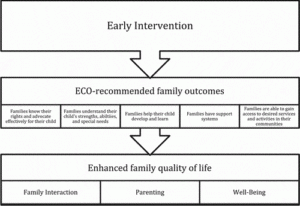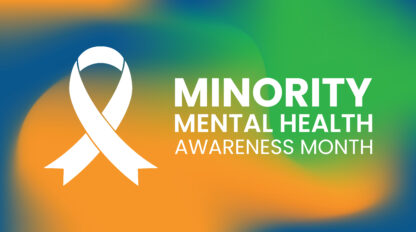The Academic Insight – Autism: Remembering parents in parent-mediated early intervention: An approach to examining impact on parents and families

Autism spectrum disorders (ASD) have seen a dramatic increase in prevalence. The Center for Disease Control (CDC) estimates 1 in every 68 kids receive this diagnosis. Many individuals with this diagnosis require intensive interventions as early as toddler-hood. These early interventions target core deficits of ASD and can have significant impact on brain development and later adult outcomes. Many of these intensive early interventions are parent-mediated interventions, meaning that it is the parents who are engaging in and implementing the intervention.
These early interventions and there outcome measures are the focus of a review published in the January issue of the internationally peer reviewed journal Autism. This review points out that the vast majority of research around early interventions measured only child outcomes (e.g. language accusation) and not at all on parent/family outcomes (e.g. quality of life, self-efficacy). The researchers argue that because parent buy-in is essential for parent-mediated interventions, outcome measures evaluating the effects that these interventions have on parents would be of great value.
The authors draw their conclusion by saying:
“Engaging families as equal partners in the evaluation of outcomes of parent-mediated early intervention in ASD will guide understating of key moderators and outcomes, as well as a consistent socially valid assessment battery. Equally as important, placing meaningful family outcomes more centrally in the development, evaluation, and implementation of parent-mediated interventions is likely to alter aspects of the interventions themselves, an action that would benefit the community. Partnering with families provides an opportunity to identify additional supports or key areas of emphasis that will increase the efficacy of the intervention models, allow determination of key family outcomes, and improve effective implementation in the “real world.”
This paper serves as an important reminder that family and support systems matters. Understanding the impact that ASD has on these systems can guide understanding on how early intervention methods can be most effective and beneficial.
About the Journal
Autism is a major, peer-reviewed, international journal, published 8 times a year, providing research of direct and practical relevance to help improve the quality of life for individuals with autism or autism-related disorders.
Wainer AL, Hepburn S, and Griffith EM (2017) Remembering parents in parent-mediated early intervention: An approach to examining impact on parents and families. Autism: Vol 21(1) 5-17
Academic Insight is a new series being published on The Intent Clinical’s blog highlighting the latest research and publications coming out of academia in the mental health, autism and substance abuse fields.

